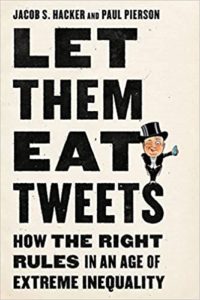This is a guest post by Kenan Malik replying to two posts by Chris Bertram last week
Chris Bertram published two posts on Crooked Timber last week, the first1 challenging critiques of the concept of “white privilege”, the second2 arguing that certain claims about race and class are irrational. As one of the targets of these articles (Chris linked to one of my posts as exemplifying the problem, and we had previously debated the issue on Twitter), this is a response. Chris’ two posts are not directly linked, but they clearly deal with linked issues, and it is worth looking at them in tandem.
In the first post, Chris argues that “the ‘white privilege’ claim sits best with a certain sort of metaphysics of the person, such that individuals have a range of characteristics, some of which are more natural and others more social, that confer a competitive advantage or disadvantage in a given environment, where that environment is constituted by a range of elements, including demographics, institutions, cultural practices, individual attitudes, and so forth.”
But he also acknowledges that “I’m not establishing that, as a matter of fact, “white privilege” in the form I describe is a real thing, although I believe that it is”. It is difficult to see, though, how one can have a debate about whether “white privilege” is a meaningful category without have first established whether it is “a real thing”. It is possible to have an abstract debate about whether such a phenomenon could exist, but not to critique those who challenge the concept as inchoate in reality. Chris, in common with many proponents of the “white privilege” thesis, takes as given that which has to be demonstrated.
Underlying the “white privilege” thesis are two basic claims. First, that being “white” is a useful category in which to put everyone from the CEOs of multinational corporations to the cleaners in an Amazon warehouse. And, second, that being in such a category imbues people with privileges denied to those not in that category. Are either of these claims true?
The idea of whiteness as a “certain sort of metaphysics of the person” derives, of course, from racial thinking. In recent years it has found an important expression in the notion of “white identity” – the idea that all those deemed white have a common identity and set of interests which may conflict with those of non-whites. Most anti-racists (and, I assume, Chris, too) reject such a claim. We recognize that all whites do not have a common identity, that the interests of white factory workers or shelf-stackers are not the same as those of white bankers or business owners, but are far more similar to those of black factory workers or Asian shelf-stackers.
Why, then, do we ignore this when it comes to the question of “white privilege”? Because, proponents of the white privilege thesis argue, white people do not suffer the kinds of discrimination suffered by non-whites by virtue of their skin colour. At one level this is true. “Racism” refers to the practice of discrimination against, and bigotry towards, certain social groups; there may be many reasons for such discrimination and bigotry, but one is clearly that those who are non-white are often treated unequally. Viewing the issue in terms of “white privilege” is, however, deeply flawed for a number of reasons.
First, it is not a “privilege” not to have to face discrimination or bigotry; it should be the norm. I doubt if Chris, or, indeed, most proponents of the white privilege thesis, would disagree. Framing the absence of oppression or discrimination or bigotry as a “privilege” is to turn the struggle for justice on its head.
Second, the concept of white privilege fails to distinguish between “not being discriminated against or facing bigotry because of one’s skin colour” and “having immunity from discrimination or bigotry because one is white”. The distinction is important. Many whites, because of privileges afforded by wealth and class, do have immunity against discrimination. But many others, who are poor or working class, do not. Their experiences of state authority or of policing is often similar to that of non-whites.3



